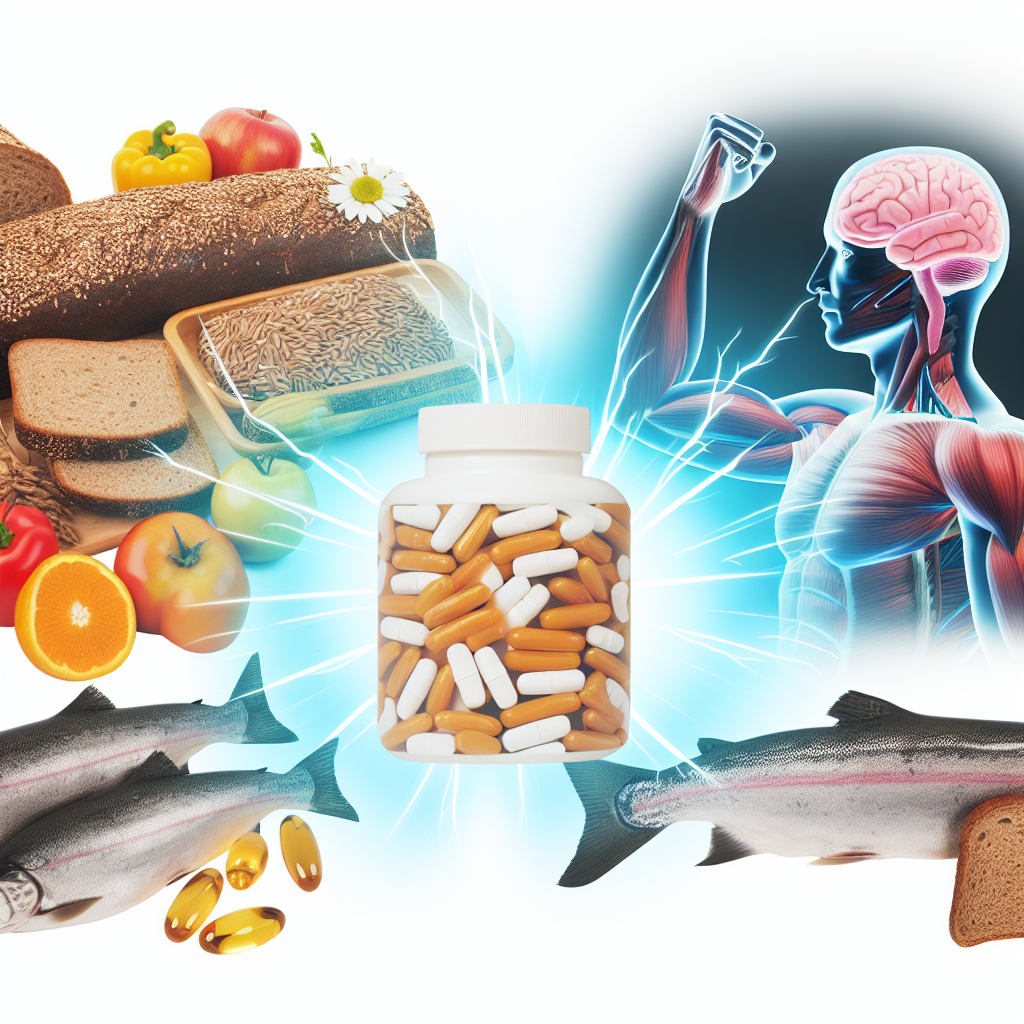Ever feel drained even after a good night’s sleep? Your energy might be faltering because your body is missing a key nutrient: Vitamin B1, also called Thiamine. It’s a powerhouse vitamin that helps turn the food you eat into energy, supports brain function, and keeps your heart healthy. Yet, it often gets far less attention than its more famous counterparts like Vitamin C or Vitamin D.
In this article, we’ll uncover the importance of Vitamin B1, identify signs of deficiency, highlight the best dietary sources, and share tips to optimize your Thiamine intake. Whether you’re looking for an energy boost or curious about ways to improve your overall health, Vitamin B1 has you covered.
What Is Vitamin B1?
A Quick Introduction to Thiamine
Vitamin B1, or Thiamine, is like your body’s loyal worker bee. It’s a water-soluble nutrient that your body needs every day, as it isn’t stored in large amounts. Its most vital role is supporting energy production. By converting carbohydrates, proteins, and fats into ATP (adenosine triphosphate), Thiamine energizes your body at the cellular level, keeping you active and alert.
Beyond energy metabolism, Vitamin B1 is essential for nerve function, helping your brain communicate seamlessly with the rest of your body. It also plays a role in the proper contraction of heart muscles—an indispensable function for cardiovascular health.
Top Benefits of Vitamin B1
1. Boosts Energy Levels
Feeling sluggish or fatigued? One of Thiamine’s primary tasks is supporting your metabolism, ensuring carbohydrates—the body’s main energy source—are efficiently converted into ATP. Without enough Vitamin B1, your body’s ability to produce energy slows down, leaving you drained and less productive.
2. Enhances Nervous System Health
Vitamin B1 is instrumental in maintaining nerve function. It helps transmit signals between your brain and body, which improves mental clarity, focus, and coordination. Deficiency can lead to symptoms like confusion, memory challenges, and even nerve pain.
3. Promotes Heart Wellness
Think of your heart as a nonstop worker. Vitamin B1 helps regulate cardiac muscles, ensuring proper blood flow and circulation. Healthy Thiamine levels are critical for keeping your heart strong and minimizing long-term cardiovascular risks.
Top Food Sources of Vitamin B1
Getting enough Vitamin B1 doesn’t have to be complicated. It's found in many everyday foods that fit naturally into a balanced diet. Here are some of the best options:
- Whole Grains: Oatmeal, brown rice, and whole-grain bread are all rich in Vitamin B1. Opt for whole grains over refined versions that lose much of their Thiamine during processing.
- Lean Meats: Pork and chicken provide significant Thiamine levels. For example, roasted pork can supply over 50% of your daily recommended intake in a single serving.
- Legumes: Lentils, chickpeas, and black beans are excellent options for plant-based Thiamine intake.
- Nuts and Seeds: Sunflower seeds and almonds are nutrient-dense snacks high in Vitamin B1.
- Fortified Foods: Breakfast cereals, bread, and pasta enriched with Thiamine are common sources for easy access to the vitamin.
For example, a breakfast of whole-grain toast with almond butter, a lunch of lentil soup paired with brown rice, and a pork stir-fry for dinner would provide an excellent mix of Thiamine-rich foods.
Symptoms of Vitamin B1 Deficiency
Vitamin B1 deficiency isn’t common in diets that include varied food sources, but if you’re lacking it, the signs can range from mild to severe.
Early Signs of Deficiency
- Persistent fatigue, even when you feel rested.
- Trouble concentrating or mental fog.
- Weakness or soreness in your muscles.
- Tingling sensations in fingers or toes.
Severe Health Risks
Prolonged Vitamin B1 deficiency can contribute to serious health conditions, such as:
- Beriberi: A condition that affects the heart and nervous system, leading to symptoms like muscle weakness, abnormal fluid retention, and shortness of breath.
- Wernicke-Korsakoff Syndrome: A brain disorder often linked to chronic alcohol use. It results in confusion, memory loss, and difficulty with coordination.
If you notice lasting symptoms like these, it’s important to consult a healthcare provider to address potential deficiencies and determine the best corrective measures.
How Much Vitamin B1 Do You Need?
The recommended daily intake (RDI) for Vitamin B1 varies by age, gender, and certain physiological conditions:
- Men: 1.2 mg daily.
- Women: 1.1 mg daily.
- Pregnant or breastfeeding women: At least 1.4 mg daily.
For perspective, a 3-ounce serving of cooked pork provides about 0.7 mg of Thiamine, making it a convenient way to hit your daily target when paired with other foods like grains and legumes.
Tips for Optimizing Your Vitamin B1 Intake
If you’re aiming to boost your Thiamine levels, these tips will ensure you’re absorbing it effectively:
- Pair it with Vitamin C: Foods rich in Vitamin C, like citrus fruits, can enhance the absorption of Thiamine.
- Avoid nutrient blockers: Excess alcohol consumption inhibits Thiamine absorption and increases the risk of deficiency.
- Address digestive challenges: Conditions like Crohn’s disease or chronic diarrhea can reduce Vitamin B1 absorption. Consult with a healthcare provider if you’re dealing with these issues.
Conclusion: Don’t Overlook Vitamin B1
Vitamin B1 plays a foundational role in energy metabolism, nerve health, and heart function. Despite its quiet presence, it impacts nearly every system in your body. The good news? Including whole grains, lean meats, legumes, nuts, seeds, and fortified foods in your daily diet is typically enough to meet your Vitamin B1 needs.
Whether you’re aiming to prevent fatigue, boost your cognitive function, or support your cardiovascular system, Thiamine is an essential piece of the puzzle. And if deficiency symptoms persist, don’t hesitate to work with a healthcare provider for guidance.
Put Thiamine on your radar, prioritize its rich food sources, and see how this overlooked nutrient can supercharge your health and vitality.
